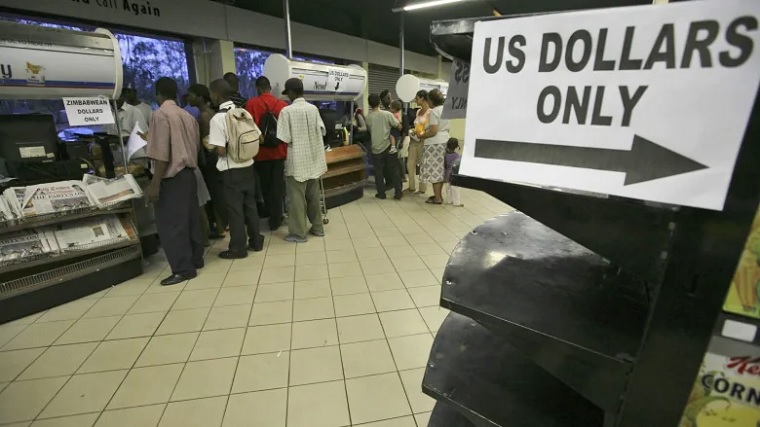 The Zimbabwe dollar has depreciated by 647% this year but this is hurting those in the formal sector most, IH Securities says in its latest consumer report.
The Zimbabwe dollar has depreciated by 647% this year but this is hurting those in the formal sector most, IH Securities says in its latest consumer report.
The local currency this year kicked off at $705.42 at the central bank foreign currency auction but was down to $5 978.68 on Tuesday.
The black market rate stood at $900 and is now down at $7 800.
Month-on-month inflation has surged from 0.7% in January to 15.7%, suggesting a rise in the cost of living.
According to official government statistics a person needed $29 499.89 in January to be deemed not poor but this had risen to $39 927 by May.
These developments are likely to impact on the country’s economic growth which the government initially put at 3.8% but revised to 6%. The International Monetary Fund projected the growth at 2.5%.
IH Securities said that though the country is increasing dollarising those in the formal sector are likely to be affected by the depreciation of the local currency.
“The country continues using a dual currency structure with more than 75% of transactions in the economy being carried out in USD, based on RBZ statistics. On this backdrop, using civil servants as a proxy, salaries have also dollarized albeit still far below 2016 levels,” it says.
“Regardless, USD inflation is now picking up at a faster rate compared to salary adjustments. Given the significant proportion of what is classified as informal sector that is active in maize production, and following a good agriculture season, consumers based
in the agro-sector should experience a recovery in earnings from 2022 levels.
“We expect consumer demand to remain firm supported by a good agriculture season and above average precious metals prices. With the majority of the population employed in the informal sector where currency of trade is USD, we are of the view that currency headwinds will affect mainly those in the formal sector.”
(107 VIEWS)

